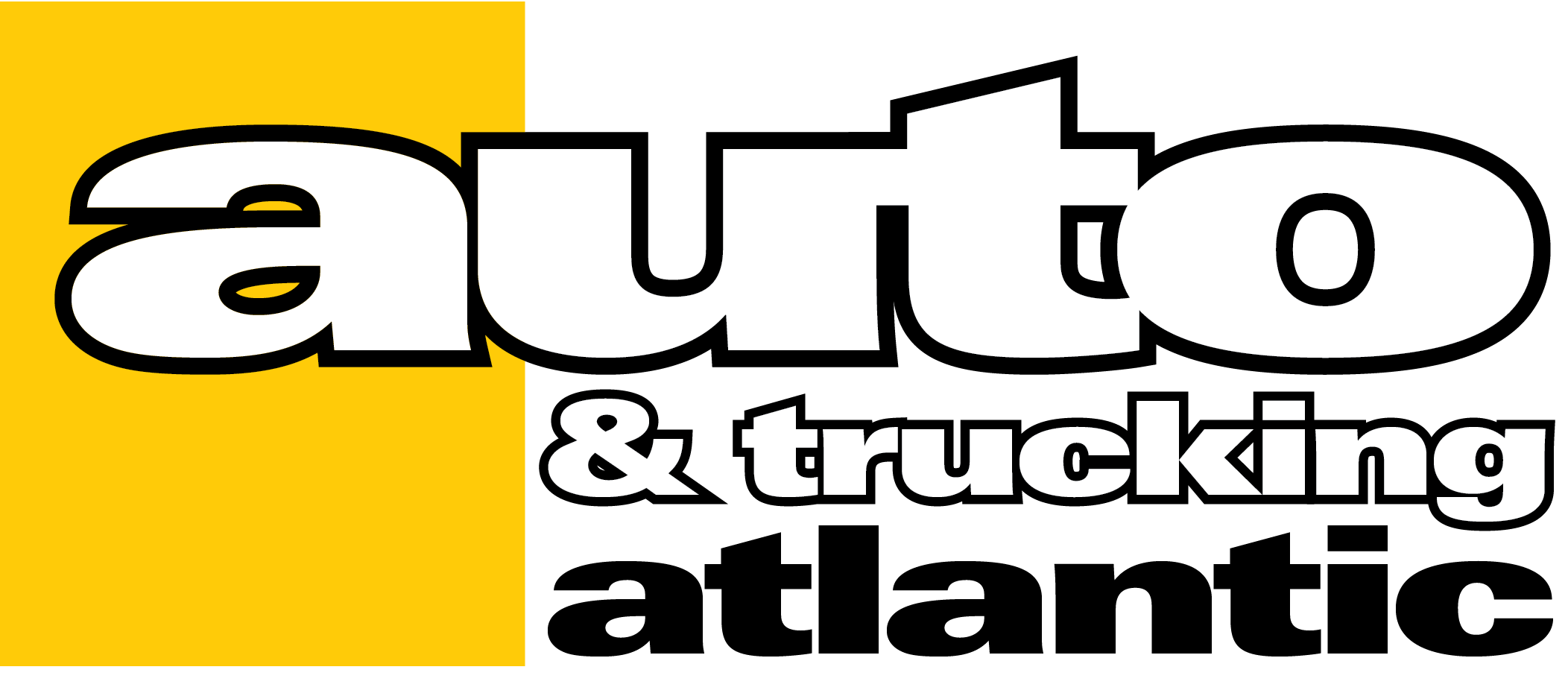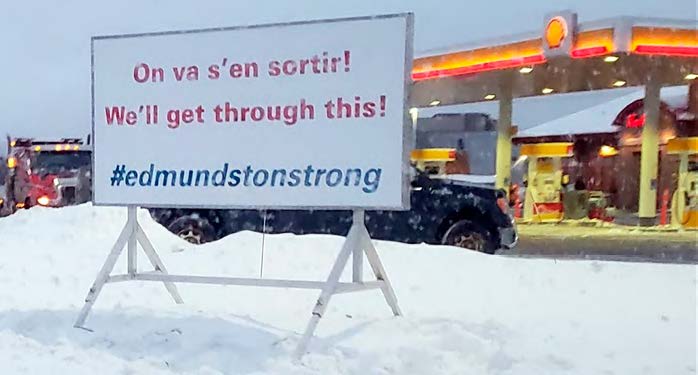Pandemic road blocks
How the auto industry is adapting to ensure essential services are met in the midst of COVID
By Kristen Lipscombe
The ongoing pandemic has created road blocks for businesses big and small alike.
So just how is the auto and trucking industry, which includes everything from mom-and-pop parts shops to massive manufacturing plants, weathering this COVID-19 economic fallout? As a finely tuned system from top to bottom that provides essential services across provincial and international borders, our industry, so far at least, seems to be faring better than most.
“I think we’re lucky enough in our business – the after-market parts business – that we’re a little bit recession free,” John O’Dowd, vice-president of NAPA Canada, recently told Auto and Trucking Atlantic.
“Although we saw drops in business in our parts stores and our networks of shops across Canada during the months of (last) March and April, we then picked everything back up again – we made up for that in the following months.”
Adds O’Dowd, “overall, in terms of business, it did not affect us as much as other industries.”
In fact, he explained, the pandemic has actually “created a lot of opportunities for us to change, and to change fast.”
What that means is that NAPA Auto Parts, or UAP Inc., sped up business plans meant for several years down the road to instead make those same improvements in a matter of months.
“We did probably in the past six-to-eight months what we would have done in the next three years in our plans,” O’Dowd said. For example, “we accelerated our digital transformation because we knew people were going to be shopping in different ways going forward.”
“We decided to accelerate it so now you can buy a part online, now you can get it delivered, you can go curbside pick-up – which we initiated within weeks of the pandemic starting,” O’Dowd said. “That was unique for us because we are a big ship; sometimes it’s tough to turn it around; but we saw with the pandemic that everybody worked a little faster and we got projects going easier.”

Stores and delivery drivers have also been equipped with remote terminals, something “unheard of in the industry a year ago,” so that payments can be made online as much as possible.
That doesn’t mean there aren’t challenges to be addressed, especially with auto parts coming from literally the other side of the globe.
“With the disruption in logistics across the world, and still today we’re suffering from it – lack of containers out of China – and most parts are sourced out of there.”
Fortunately for NAPA, the Canadian company has had an office in Shanghai for the past 25 years, one of the only manufacturers to have a second home in China.
“We saw a little bit of it coming,” O’Dowd explained, “so the inventories were beefed up in February and March of last year, and with that we ended up having a healthy inventory and we were able to put together a COVID plan together for our stores.”
“We have been very strict,” O’Dowd said of how the company has approached Public Health and safety of customers and staff alike.
“Whatever the government was asking, we would take the harshest province in the country, and double down on that as being the norm for our stores, and also strongly recommended for our members.”
Ensuring proper physical distancing, protective personal equipment (PPE) and diligent health and safety standards to avoid infection spread at NAPA’s nine large distribution centres across the country has also been of upmost concern. “We did have two cases that forced us to shut down a distribution centre, because we wanted to be a step ahead of what the government was asking us.”
“We shut down for 24 hours; we got other distribution centres to back us up,” O’Dowd said, emphasizing that shutting down is difficult as an essential service as parts get delivered to garages repairing vehicles ranging from trucks delivering food supplies to emergency vehicles.
“All of this put a lot of pressure on our distribution centres to make sure that COVID restrictions and rules were in place and we made sure that we controlled everybody going in and out of those facilities.”
With 1,800 NAPA AutoCares Centres, 600 NAPA AUTOPRO Centres and 600 NAPA Auto Parts stores across the country, O’Dowd feels that putting NAPA’s high pandemic protocol standards in place quickly and efficiently “helped maintain morale across our networks” and immediately created a sense consistency in all locations across the country.
“I think they felt that they were supported by us quite a bit during this venture,” O’Dowd said.
“Many of these are independent businesses in most cases; we have some corporate stores that we own, but the vast majority are Canadian families that own these small businesses, and they needed support from us from a logistics point of view, from a parts and business support point of view and from a financial point of view. We also helped them out with government programs that were offered; a lot of them didn’t know how to start.”
O’Dowd said keeping the lines of communication open with locations across the country, including right here in Atlantic Canada, has also been key to reassuring and supporting individual NAPA locations.
“We want to make sure that they understand that the chain of logistics is not going to be broken because of COVID,” he said. “We’re going to be there to supply them no matter what and if we don’t have it in the Moncton distribution centre, we’ll find different ways of fulfilling their parts needs.”
For the most part, however, Atlantic Canada has done well to keep the flow of information and parts fairly steady throughout the pandemic, particularly when compared to Alberta, Ontario and Quebec.
But what about when vehicles are all fixed up and ready to hit the road, in order to deliver essential goods and services across towns and provinces to keep our economy going through this pandemic?
It’s the service stations along those vital routes that keep those vehicles in motion, including the Edmundston Truck Stop+, a state-of-the-art service station geared towards offering professional drivers the highest quality services available on any highway out there.
Spokeswoman Marie-Josee Michaud said Edmundston TruckStop+ “experienced quite a challenge, like everybody else,” in adapting its goods and services in this new COVID-19 world.
“Add to that, we are right at the border of Maine and Quebec,” Michaud explained, “so we went from probably millions of tourists driving by our door to zero, because … we went from being the gateway to Atlantic Canada to the backdoor. Nobody moves east to west as far as tourists, so we have no more drive-by tourists, so we’ve had to deal with that.”
The TruckStop+ team immediately jumped into action to make up for that lost clientele, by ensuring “our priority will be to make sure that the trucking industry gets their fuel, gets their food, gets showered – because some of them have been going across Canada without services – so our main priority will be to keep that part of the business operating and making sure that the trucking industry has all the services they need.”
Although restaurants on site have been shut down through the pandemic, the service station ensures “the food carousel” is always full for truckers so they can grab their grub and go.
“We also made sure that we were able to offer the lounge to rest, but it’s only one at a time, so there is strict protocol.” While most truck stops closed down showers, the Edmundston stop set up a strict cleaning policy with limited staff members accessing the areas “to ensure they would be open for the industry”— safely, of course.
“We don’t close the doors,” Michaud said of how important it has been for the service station to go above and beyond, “being rigorous,” when it comes to Public Health protocol while also adapting its products and services. “It’ 24 hours, 365 days a year.”
All novelty items and souvenirs, “even though we were losing sales,” were taken out of the store to allow for physical distancing and limit customer time inside. More groceries and pharmacy items were brought in to increase the convenience factor for those on the road.
“We’re the only convenience store with a drive-thru,” Michaud said, which staff encourage customers to use because it allows for “less contact” among clients and employees, along with paying at the pump as opposed to coming inside the store.
“I’m pretty sure that service will be used more and more after the pandemic,” Michaud said. “They get to the window, they tap, they don’t have to take the kids out of the car.” The service station also offers “steering wheel trays” to make it easier for drivers to eat in their cars.
“We had to brain storm on … how do we cater during this new normal?” Michaud said. “So far, we’ve been blessed that we’ve kept COVID out of all of our operations.”
“The trucking industry, they’re so respectful, because they know they’re going from province to province, from region to region, and they know they’re an essential service,” Michaud said. “They know they have to respect the rules and so we’re trying to be very cautious to make sure we still provide the services they need.”
It’s been all about being quick to adapt and continuing to adapt as rules and regulations around this pandemic constantly change and progress, Michaud said. Communication has also been vital to ensuring drivers know what the rules and regulations are coming into the truck stop.
“After a year, we’re getting used to it,” she said. “We try to keep on top of what’s next.”
“It’s been a trying year for sure,” O’Dowd of NAPA agreed, “but I think we’ve adapted for sure.”
For NAPA’s part, O’Dowd is confident the company has adapted so well to the pandemic that “there’s no going back.”
“We’re staying on the path that we’re on and it’s only going to help in the future.”


